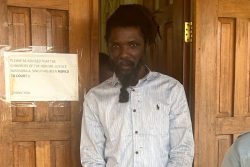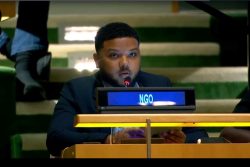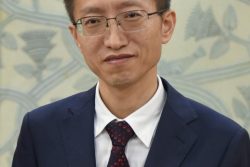Iwokrama is no longer receiving money from the British Investment group Canopy Capital after their ecosystem services agreement collapsed.
The United Kingdom-based Canopy Capital signed a ground-breaking agreement in March 2008 with the Iwokrama International Centre (IIC) to purchase the rights to environmental services generated by Iwokrama’s 371,000-hectare rainforest reserve. This had set a precedent for a financial firm betting that the services generated by a living rainforest, would see compensation in international markets. These services include rainfall generation, climate regulation, biodiversity maintenance and water storage.
In 2008, the money received from Canopy Capital amounted to eight per cent of Iwokrama’s revenue stream. The figure for 2009 – US$100,000 – amounted to five per cent of Iwokrama’s revenue stream, with the sum received used to support measurement and valuation of Iwokrama’s ecosystem services.
It is not clear when the agreement lapsed and efforts by Stabroek News to garner an interview with Iwokrama’s CEO, Dane Gobin, on this and other issues over the past weeks have been futile. Gobin, however, told Reuters last December that the agreement with Canopy Capital had lapsed due to the financial crisis and the lack of a global climate treaty that would effectively tax polluters and use the proceeds to pay for environmental projects such as forest management. An official confirmed to Stabroek News that the entity is no longer receiving money from the British group.
Back in 2010, Gobin had told this newspaper that the sums received have been used to improve Iwokrama’s operational, scientific and local community capacity. He would not disclose the amount received. “We always assumed taking the CC deal forward as a basis for a longer term arrangement would be a long haul, given the challenging international financial situation since 2008, and the slow progress of the international climate change negotiations. However, Iwokrama and all of its international partners, including CC, have not been put off and are continuing to work hard (in close collaboration with the Guyana government) to seek a longer term financial arrangement of benefit to the centre and its communities. We are confident that in due course these efforts will succeed. In the meantime, we all have to be patient,” he had said.
Under the deal, Iwokrama was to receive funding for five years from Canopy Capital to value its climate services. It was envisioned that 90% of investment returns in the long term would go towards sustainably managing this rainforest. Canopy Capital had said that it was simply buying the licence to measure and then value the ecosystem services provided by the Iwokrama Forest for a period of five years by making a guaranteed yearly payment to IIC. As to the question of how Canopy Capital would make money, the company had said that it is exploring various approaches to securing substantial investment in ecosystem services. “In particular, Canopy Capital is looking to market eco-system services through an Ecosystem Service Certificate attached to a ten-year tradable bond, the interest from which will pay for the maintenance of the Iwokrama forest,” it had said.
The Iwokrama forest in central Guyana was set aside in 1989 by the late president Desmond Hoyte for experiments on sustainable forestry and related matters. Over the more than two decades of its existence Iwokrama has struggled to find funding sources and to attract investments.








